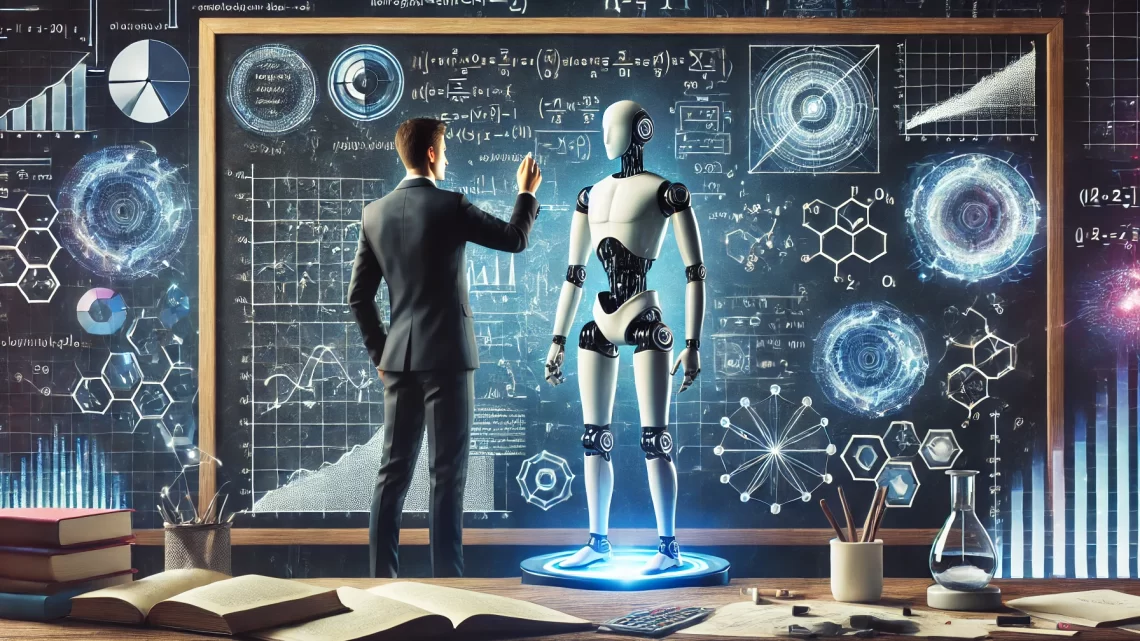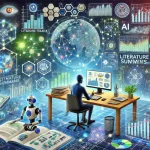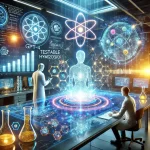
Will AI Replace Bioinformaticians? Trends and Future Perspectives
December 27, 2024The rise of artificial intelligence (AI) in bioinformatics has ignited both excitement and concern within the field. Tools like AlphaFold, ChatGPT, and other machine learning frameworks are automating complex tasks that once required expert human intervention. But can AI truly replace bioinformaticians? Let’s analyze the current scenario, recent trends, and what the future holds for this indispensable discipline.
The AI Revolution in Bioinformatics
AI has already transformed how bioinformaticians work:
- Data Analysis Automation
AI-powered tools streamline repetitive tasks like sequence alignment, protein structure prediction, and functional annotation. Machine learning models can process large datasets faster than traditional approaches. - Generative AI for Coding
Platforms like Copilot assist in writing code, unit tests, and prototyping applications. For bioinformaticians, this accelerates workflow efficiency and allows rapid exploration of multiple computational frameworks. - Decision Support Systems
AI-driven analytics are helping to prioritize candidate genes, identify biomarkers, and optimize experimental designs, enabling faster insights with minimal manual effort.
Can AI Fully Replace Bioinformaticians?
While AI offers powerful capabilities, the consensus among experts suggests it is unlikely to fully replace bioinformaticians. Here’s why:
- Creativity and Problem Solving
Bioinformatics involves more than just running scripts or analyzing data. Crafting hypotheses, integrating diverse datasets, and interpreting biological meaning require creative thinking that AI cannot replicate. - Tool Customization and Maintenance
Off-the-shelf AI tools often need expert tweaking to suit specific research needs. Furthermore, maintaining and troubleshooting these tools requires bioinformatics expertise. - Interdisciplinary Knowledge
Bioinformaticians bridge biology, statistics, and computer science. They understand both the biological context of data and the limitations of computational tools—a depth of expertise AI cannot emulate. - Ethical and Interpretative Challenges
Bioinformatics frequently deals with sensitive datasets like genomic or clinical data. Human oversight ensures ethical considerations, privacy compliance, and accurate interpretations.
AI: A Complement, Not a Competitor
AI should be seen as a collaborator rather than a competitor. Bioinformaticians who leverage AI can:
- Increase their productivity by automating mundane tasks.
- Focus on high-impact problems like algorithm development and systems biology.
- Provide strategic oversight, ensuring that AI tools deliver biologically meaningful results.
Will Jobs Be Reduced?
AI will likely change the nature of bioinformatics jobs rather than eliminate them. Teams may become smaller, but the complexity of bioinformatics tasks will ensure that demand for skilled professionals persists. The key is adaptation:
- Upskilling in AI and machine learning is essential for bioinformaticians to remain competitive.
- Roles may shift towards managing and optimizing AI tools rather than performing manual analyses.
Future Trends in Bioinformatics and AI
- AI-Assisted Discovery
With AI automating routine analyses, researchers can focus on uncovering novel insights and developing advanced models. - Democratization of Tools
User-friendly platforms will make bioinformatics accessible to non-experts. However, experts will still be required for complex projects and troubleshooting. - Integration of Multi-Omics
AI will play a crucial role in combining genomics, transcriptomics, proteomics, and metabolomics data to generate holistic biological insights. - AI in Clinical Applications
AI will enhance precision medicine by tailoring therapies based on patients’ genomic and phenotypic data. Bioinformaticians will remain central to implementing these systems.
Conclusion: The Future is Collaborative
While AI may replace some repetitive tasks, it cannot replicate the creativity, expertise, and interdisciplinary knowledge of a bioinformatician. The future lies in collaboration, with bioinformaticians using AI to amplify their capabilities. As the field evolves, those who embrace and adapt to AI will not only remain relevant but thrive in the next wave of bioinformatics innovation.
SEO Keywords: AI in bioinformatics, bioinformatics vs AI, will AI replace bioinformaticians, AI for genomic analysis, future of bioinformatics careers


















